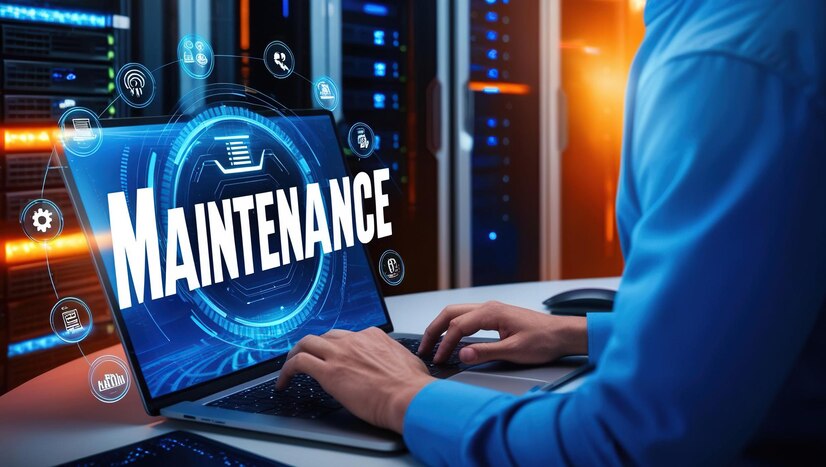What is an AMC?
Be it your car, your computer, or your phone, technology needs maintenance. Our lives and our businesses are so deeply intertwined with IT that we simply can’t afford any downtime in our networks and devices. That’s why we have IT AMCs—Annual Maintenance Contracts.
Software and IT firms need to know any hiccups in their technology infrastructure will be taken care of. AMC’s are service agreement contracts between service providers and clients (businesses or individuals) that outline the maintenance and support strategy for an agreed upon selection of IT equipment and software.
Why Choose an IT AMC?
If you were to distill the benefits for AMCs down to a single idea, you’d probably end up with something like increased efficiency. However, knowing the exact benefits you can derive from certain types of AMCs will help you improve operational efficiency in the departments you need to. The following are some of the most prominent reasons companies choose to enter AMCs with their service providers.
Predictable Costs and Proactive Maintenance
Without an AMC, each issue in your technology infrastructure requires independent attention and maintenance. This is inherently more expensive and adds an air of unpredictability in an organization's annual budget. In contrast, an AMC offers fixed annual fees for maintaining all of your technology. You can think of it like technological insurance!
Additionally, having access to maintenance professionals all year round helps keep your devices and software up to date. You can prevent issues before they occur for a fraction of the possible repair/replacement cost.
Security and Compliance
Alongside the comfort of knowing your operations will run smoothly, you can restrict access to your data and server infrastructure to a single service provider. The fewer external entities that can access your network, the better your security. Additionally, regular updates and patches help protect your system from hackers and malware.
We talked about how technology is unavoidable for modern business, and keeping your systems in line with regulations is essential. Not only do clients prefer certified professionals, ignoring some regulation standards can force the local government to shut down your operations. Additional services include:
- Protection of sensitive data through Access Control for all physical and online data centers.
- Regular security audits to identify potential weak spots in your security infrastructure.
- A robust incident response plan, complete with personal liaisons and open communication channels, to address security breaches as soon as they pop up.
Types of AMCs
There’s no one size fits all when it comes to AMCs. Different businesses have different requirements, and service providers need to segment their services accordingly. A simple way to differentiate AMCs is by dividing them into hardware and software agreements.
Hardware-focused AMCs
It’s common for organizations to want one entity to cover all of their hardware maintenance. faulty CPUs, keyboards, servers, and network devices, a single service window hardware AMC will cover it all.
However, if you’re trying to decide where to focus your finances, taking care of your servers should be high on your list. Schedule regular inspections and repairs of all your servers, including CPUs, motherboards, memory devices, and storage systems.
The best service providers will also offer environmental upgrades for your hardware. They will inspect, clean, and upgrade your air conditioning units, chillers, fans, humidity control tools, and all other cooling equipment that keeps your hardware at optimal operational efficiency.
Software-focused AMCs
An increasing percentage of business operations and data storage happen online. The nature of the internet makes this data more vulnerable and demands a more comprehensive maintenance strategy. A robust IT AMC will start with upgrading and patching all your operating systems, databases, applications, and custom-built software. However, a more comprehensive maintenance structure includes:
Virus Removal
Viruses are the original IT nightmare. They’ve been around since the inception of the internet, and have been terrorizing businesses in the modern age. You can face a range of issues that include, but are not limited to,
- File corruption and deletion
- Sluggish performance
- Abnormal behavior
- Data loss
- Frequent crashes
While we discuss software maintenance, it’s impossible to ignore operations on the cloud.
Cloud-based AMCs
These maintenance contracts offer a range of services specifically designed to protect your online data, make your cloud operations more reliable and secure, and improve performance.
Storage and Network Management: You can optimize all of your storage operations for data availability and a robust backup and recovery strategy. This contract also manages network connectivity, balances your virtual load, and enhances security.
Platform Management: There’s massive value in making sure your underlying cloud platform is up to date and patched up.
Performance Optimization: The reason companies go to AMCs in the first place is to optimize their performance, including their cloud performance. AMCs accomplish this by:
- Analyzing resource usage to identify bottlenecks.
- Identifying opportunities to reduce cloud costs without a loss in performance
- Fine-tuning cloud configurations to improve application performance.
Disaster Recovery
No matter how much you invest in maintenance, it’s impossible to guarantee nothing will go wrong. A responsible business and a competent IT service provider will include a comprehensive disaster recovery plan in their AMC. First and foremost, you need backup strategies that include:
- Regular backup tests that ensure your data can be restored
- Data retention policies that determine the time between each backup
- Management of tapes, disks, cloud storage, and all other backup media to maintain data integrity
Aside from backups, you also need an actual disaster recovery plan. Ideally, this should include:
- Business Impact Analysis to identify critical business processes and assess the impact a disaster would have on them.
- Recovery Time Objectives to set target recovery times for critical systems and applications.
- Recovery Point Objectives (RPOs) to set a reasonable loss tolerance for data in case of a disaster.
- Disaster Recovery Sites as a secondary data center or cloud-based infrastructure to serve as a backup.
AMCs in the UAE and MENA region
For the past few years, there has been a sustained explosion in IT service providers and tech startups in the Middle East. Reliability, efficiency, and security are critical pillars of performance for these companies to make the global impact they want to, and an AMC is a necessary part of their plan. Like we discussed, these contracts provide a predictable budget, external support to reduce operational costs, proactive maintenance, and an overall improvement in their operational ability.
Outsourcing maintenance frees up these businesses to focus on their USPs and core competencies. They can invest in expanding operations, improving talent, and building their customer base because they have IT specialists on call to take care of everything else. This is particularly important for a region where digital transformation is a key priority, which is why there’s been a massive rise of IT AMCs in Dubai.
According to Statista, the IT services market in UAE and MENA is going to reach $32.5 billion by the end of 2024, and “revenue is expected to show an annual growth rate (CAGR 2024-2029) of 5.85%, resulting in a market volume of US$43.15bn by 2029." This growth is driven by an increasing demand for efficient IT infrastructures, which are, in turn, built on AMCs.







